Tamás Major
出生 : 1910-01-26, Újpest, Austria-Hungary [now in Budapest, Hungary]
死亡 : 1986-04-13
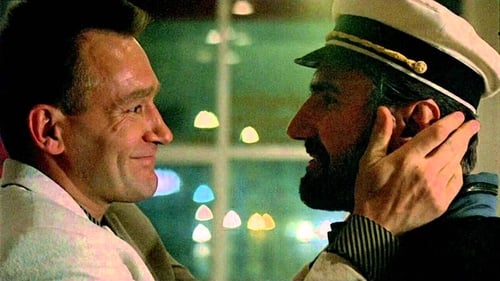
Grandfather
Réb went to the United States about 20 years ago and in the eighties he returns to Budapest with his teenager daughter...

Oborzil - öreg színész
Péter tries to make a film on "Swan-Lake". At the weekend, shooting stops and the staff goes home. Péter leaves for home with his wife, Judit, but as he catches sight of a girl at the station, he cannot resist the temptation and gets off the train.

Dani's grandpa
In December 1956 there is a chaotic situation in Hungary. The revolution is put down by the Soviet army. People leave the country in large numbers for fear of revenge. A young soldier (György Angeli) who also took a part in the revolution, takes a train to Vienna together with his friend (Dániel Szerencsés). Written by Tamas Patrovics
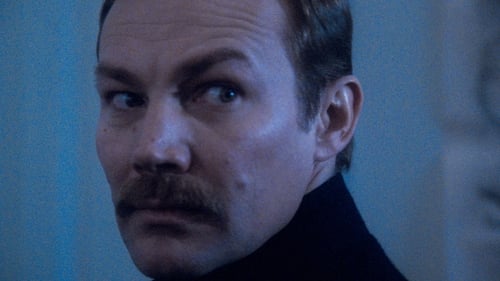
Baron Kubinyi
Set during the fading glory of the Austro-Hungarian empire, the film tells of the rise and fall of Alfred Redl, an ambitious young officer who proceeds up the ladder to become head of the Secret Police only to become ensnared in political deception.

Divided into two different halves separated by mood and subject matter, this is an uneven drama about the experience of one Hungarian Jew before and during the fascist takeover of Budapest. The hero Pali (Zoltan Bezeredi) arrives back in Budapest from the U.S. and meanders among the intellectual and social elite before he leaves for a brief stay in England. There he has an even briefer affair with a happy-go-lucky aspiring actress (Anna Kubik), and after a few other encounters with movie mavens, he heads back to Budapest -- quite inexplicably. The rest of the film deteriorates into a dark realm of hatred and violence.

Chrysalde

Dr. Molnár Géza, elmeorvos
"Ripacsok" is a great movie with great soundtrack, acting, cinematography, direction, etc. The world of "artists", hamming actors, good clowns and bad clowns... A unique movie in many ways. Pál Sándor is a very good hungarian director, watch his movies (especially the slightly better "Régi idõk focija") if you have the chance.
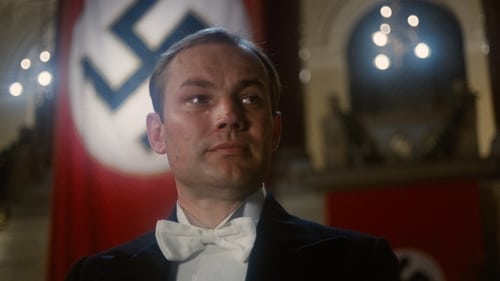
Oskar Kroge, színigazgató
A German stage actor finds unexpected success and mixed blessings in the popularity of his performance in a Faustian play as the Nazis take power in pre-WWII Germany. As his associates and friends flee or are ground under by the Nazi terror, the popularity of his character supercedes his own existence until he finds that his best performance is keeping up appearances for his Nazi patrons.

Igazgató úr
Winter of 1944, the last days of the war. When the roads and houses ceased to exist and the bottom of the cellars become filled with life, when fortunes were lost and countries burned up, her used coat was only important to Mama, the cloak-room servant of a local dance-school. Her son stole it to sell it for twenty pengő. He did it because Aranka Fussbaum's love cost money. There is no honour left in such a destroyed world. Yet still they start looking for that coat... (Elemér Ragályi won Best camera with this movie in Montreal, 1979, and in Budapest, 1980.)

Klimperberger, karmester
Kicsi Dániel, the young virtuoso pianist gets a separate apartment in the ten-storey block of flats. He rehearses all the time, irregularly, day and night, disturbing thus the peace of the dwellers in the thin-walled house. Inquisition begins in the name of equal rights for inhabitants.

Maracskó
This absurd story, bordering on the drawing-room comedy, portrays the practices of abusing power and the insolence of bureaucracy through the revolting of a young designer-engineer of the Railway Tilting Examination Board. The ambitious Pócsik works persevearingly on how to compensate for the tilting of railway carriages in bends. His jealous bosses, however, use their best efforts to block the development of an innovation.

Jancsó, öreg színész
Dery is a grande dame actress of the Sarah Bernhardt school of big-gesture theater. Her beauty and popularity is fading, and a new school of acting which involves the use of one's own emotions (a-la Eleanora Duse) is emerging in the person of her younger Viennese rival. She thinks of retiring from the stage, and reunites briefly with her estranged husband in a newly-built manor in the country. Finding that life there is boring, she returns to town, the theater, and her old friends.

James Morvin
Bátky János a 20th century intellectual studies the secret of the Rosicrucians in London libraries during the day and in the evening takes pleasure in the "decent" everyday joys offered by the fair sex. He gets involved in the wildest ghost-story in the mysterious Wales castle of the Pendragons, where Earl of Gwynnedd from the 18th century is making experiments to prove his ancestors' slogan, "the resurrection of the body". In the meantime St. Claire, a beautiful, demonic woman and her companions try to kill him for the huge legacy.

Kerényi úr
The film is set in Budapest, 1924. Laundryman Ede Minarik's only passion is football. His dream is to see his team, Csabagyöngye, qualify for the first division. For this goal he would be willing to sacrifice everything he has. But he has nothing, even footballers just barely. The team is just like the times. But still, "we need a team!"

Clarance hercege

Jogász

Kulkai házmester
This film describes the narrator's childhood, the years before and after the Hungarian Soviet Republic, in a burlesque and fabulous style and with the humour of a child's fantasy.

The dad
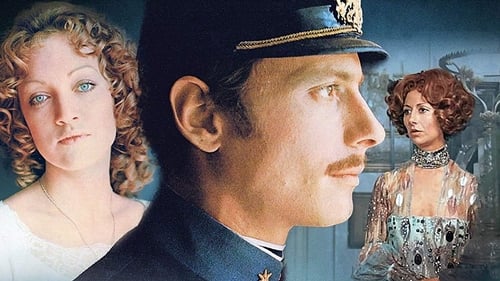
Herr Reisiger
Trotta is a 1971 West German film directed by Johannes Schaaf. It is based on the 1938 novel Die Kapuzinergruft (The Emperor's Tomb) by Austrian author Joseph Roth. It was chosen as West Germany's official submission to the 45th Academy Awards for Best Foreign Language Film, but did not manage to receive a nomination. It was also entered into the 1972 Cannes Film Festival.

A murder has been committed in a block of flats in Pest. Almost all the dwellers of the building behave in a suspicious way at the beginning of the investigation, although it is their everyday lapses they try to hide. In spite of the janitor's unpleasant comments, light is gradually thrown upon the case.

IX. Pius pápa
This is a romantic biographical film about Franz Liszt. In a distinguished saloon of Paris, the unknown composer, Liszt, defeats the renown Thalberg at a piano competition. Through his playing, he wins the favours and later the hand of the countess D'Agoult. A daughter is born in their marriage, Cosima. Liszt is better and better known, Marie introduces him to the circle of artists.

Werbõczy
The film is a historic parable about the topicality of revolution. 1514. The peasants' uprising is over, Dózsa has been arrested. Werbőczy tries to get the imprisoned peasant leader deny the revolution and offers him the lives of his people in exchange.

Beteg
A young man has his hepatic duct replaced with a plastic tube after an accident but starts to get worried how this will affect his manliness.

Náray
The young Valkó wants to plan a block of apartments that will still be modern fifty years from now. His ambitious plans are continuously rejected by his manipulative and careless superiors. So instead of the modern block of flats he only plans a bachelor apartment.

Kálmán
SS doctor during the war worked on the serum of cancer, but discovered a terrible poison, one vial is enough to kill 100 000 people. 20 years after the war, the old Nazi gets out of prison, and the hunt for him and his discovery begins.

Brillantin úr

At the end of World War II, Bálint, a deserter tries to obtain forged papers. He gets involved in funny adventures

The pseudo crime story honours the bohemian world at the beginning of the century.

Fáraó

Grassy ezredes
Andras Kovacs' film, considered one of the most important Hungarian films of the 1960s, centers around four men who await trial for their involvement in the massacre of several thousand Jewish and Serbian people of Novi Sad in 1942. Each denies any responsibility, claiming that they were only following orders. The film is significant for its willingness to address the subject of Hungary's role in WWII, which was taboo at the time of the its release.

In this caricature-like film an old film director offers his memories of his career to his former student, now a studio manager, as an idea for a new film. We can see the director in Berlin in the twenties, where his task is to make a film star of Hungarian origin cry out of homesickness.

Griffard
On the novel by Mór Jókai. The first half of the XVIII century. Several decades of life of a noble family Karpati.

The film is a cabaret style, satirical montage of the political events and everydays

Albert / Kovács Dezső
PFC Molnár decides his WWII services are over, and with serious money hidden in his hand grenades, he heads to an abandoned mansion where he encounters not only the sour butler but a bunch of others who also try to wimp out of their duties.

Harangláb
13 March 1965 (Hungary)

"Are you looking to buy a car? Not sure which one to buy? Clueless? We can solve all your problems. Watch our latest film! All your problems will be solved because we'll talk you out of them for the price of a single ticket." - says the comedy's obliging narrator (Ervin Kibédi), who tries to talk the viewer out of buying a car. To do this, he tells the audience some instructive and humorous car-related stories...
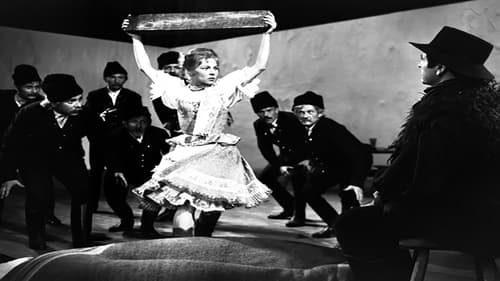
Képmutogató
Az Életbe táncoltatott leány is a 1964 Hungarian film directed by Tamás Banovich. It was entered into the 1965 Cannes Film Festival where it won a Technical Prize

Halmágyi
Private inspector Hável happens to travel on the train which is attacked at Biatorbágy. His attention is drawn to a suspicious man, and in the next few days he confirms that it was indeed him who committed the crime. Yet the police accuses not the lunatic Marschalkó but the communists. Summary justice is declared.
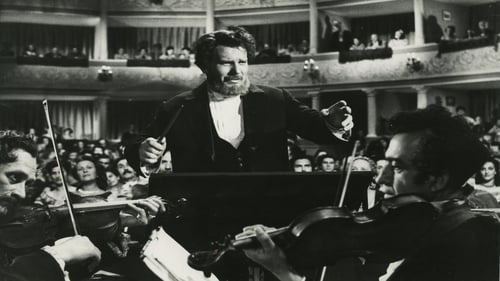
Ferenc Kölcsey

Jesuit
Különös házasság is a 1951 Hungarian drama film directed by Márton Keleti. It was entered into the 1951 Cannes Film Festival.




























